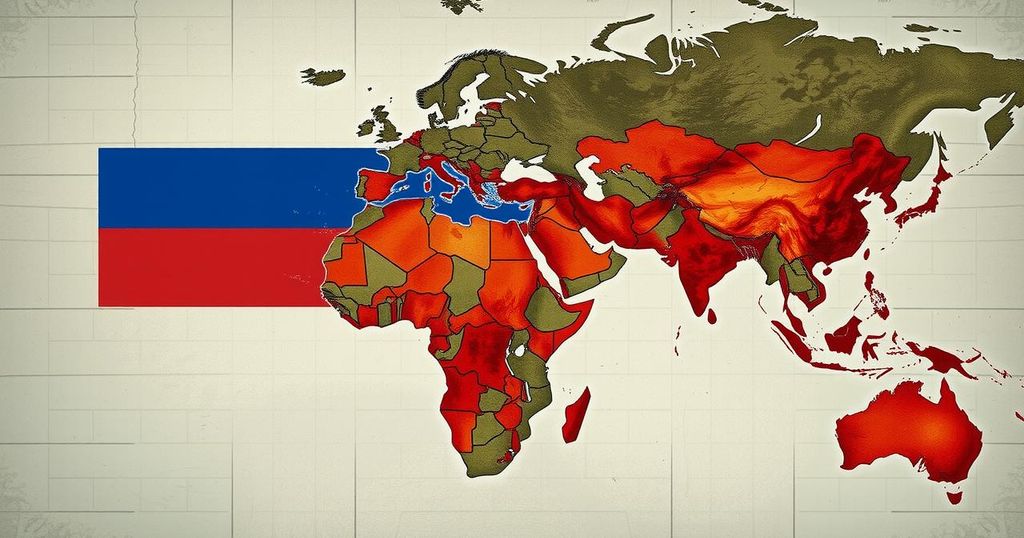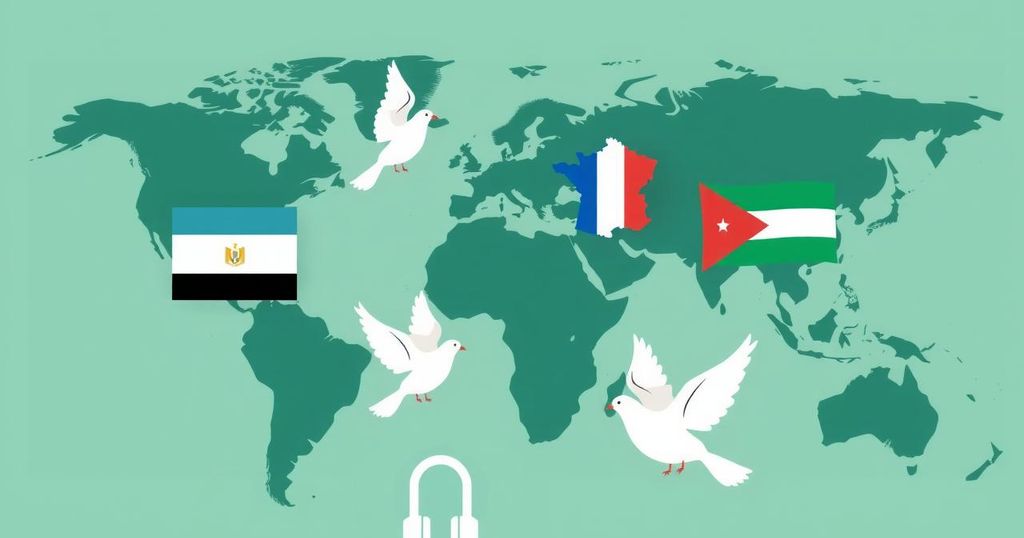The Fragile Facade of Russian Power: Consequences for Africa Following Syria’s Turmoil
The recent overthrow of Syrian President Bashar al-Assad has critically undermined Russia’s aspirations for regional power and its influence in Africa. Military setbacks and withdrawal from key bases in Syria raise questions about Russia’s capability to support its partners in Africa, complicating logistics and casting doubt on its reliability. Furthermore, the intertwined economic interests in Africa related to resource extraction highlight the precarious balance of power Russia must navigate.
The recent upheaval in Syria, particularly the fall of President Bashar al-Assad, has severely undermined Russia’s perceived status as a dominant power in the region and beyond. Due to Russia’s overwhelming military engagement in Ukraine and substantial intelligence failures that left it vulnerable during attacks by Hayat Tahrir al-Sham, Russia has failed to protect its key ally. This scenario not only jeopardizes Russia’s naval and air bases in Syria but also complicates its strategic influence in Africa, where it has established key partnerships and military operations.
The loss of the Tartus naval base and Khmeimim air base creates logistical challenges for Russia’s military operations in Africa. Historically, these bases have facilitated the shipment of arms and resources to allied nations in North Africa, enabling fast supply routes crucial for Russia’s military engagements. The reliance on Syria as a launch point for operations into Libya, Mali, and the Sudan indicates the interconnectedness of Russia’s African and Middle Eastern strategies. Consequently, the destabilization of Russia’s position in Syria invokes skepticism among African states that once viewed Russia as a reliable ally.
Without a strong foothold in Syria, Russian mercenaries and military supplies face significant operational uncertainties in Africa, prompting speculation about the Kremlin’s future actions in the region. Observers note a potential shift towards enhancing soft power and engaging more collaboratively with influential African nations, as Russia grapples with its diminished military capacity to project power globally. Such dependency on local African powers may alter the dynamics of Russian influence, potentially yielding a more flexible, albeit vulnerable approach in the quest for regional dominance.
The implications of these developments stretch beyond military strategy; they impact economic interests deeply tied to resource extraction. Access to gold and diamonds from Africa has been crucial for Russia’s war economy, particularly amid sanctions and constraints stemming from its ongoing conflict in Ukraine. As dynamic shifts occur in Syria, the interconnectedness of Russian operations becomes more tenuous, threatening future trade and military undertakings across the continent.
The article explores the ramifications of the recent changes in Syria on Russia’s geopolitical standing, particularly regarding its influence in Africa. A significant theme is the interplay between military strategies in Syria and Africa, detailing how Russia’s operations in one region impact its capabilities and credibility in the other. This analysis highlights the narratives built around Russian military might and the subsequent erosion of those narratives following setbacks in the Syrian conflict. Furthermore, it looks closely at the consequences of losing logistical hubs essential for maintaining military operations across the African continent.
In summary, the downfall of President Bashar al-Assad profoundly impacts Russia’s geopolitical ambitions, undermining its influence not only in Syria but also in Africa. The loss of military bases and logistical capabilities escalates doubts among African leaders about Russia’s reliability as a security partner. As Moscow contemplates its strategy in light of these developments, the potential for increased reliance on soft power and collaboration with African nations emerges as a pivotal aspect of its approach moving forward. The long-term implications for Russian influence in Africa and its operative capacity remain to be seen.
Original Source: foreignpolicy.com




Post Comment